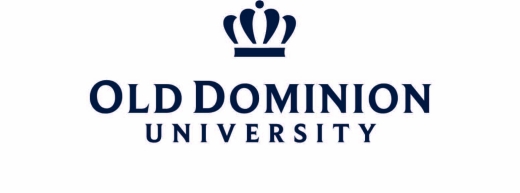2009-2014 Strategic Plan Goal 6:Build Strong Civic & Community Partnerships
Goal 6: Build Strong Civic and Community Relationships
Objectives
- Expand and promote Continuing Education programs and related events
- Partner with Community Colleges for expanded workforce development in the region
- Create a dynamic Community-University relationship that uses community experts as instructors and ODU personnel as experts to help solve community problems
- Achieve national recognition as an engaged, metropolitan university
Mission: Achieve national recognition as an engaged, metropolitan university. Focus on building positive perceptions of ODU in the community to encourage greater alumni and public support. Build on our successful Continuing Education programs and create stronger links with the Commonwealth's community colleges to provide enhanced workforce development opportunities especially in areas of regional and national need, such as advanced health science degrees, modeling and simulation, engineering technology, and STEM education. Facilitate business creation and expansion efforts in the region through extension of ODU's intellectual capital, innovation, and infrastructure into the broader community, such as via the Innovation Research Park. Establish the Virginia Applied Technology and Development Center as the University's front door for businesses to engage the University in solutions for their business problems. Build strong civic and community partnerships to enhance Hampton Roads' standing as a 'Great Place to Live and Work'. Apply ODU's expertise to community betterment and become the 'go to' place for solutions to Hampton Roads' problems through increased civic and community engagement of faculty, staff, and students in solving socio-economic, educational, health, and workforce needs.
Rationale: The University is situated in a dynamic and growing metropolitan region and demonstrates its commitment to the economic development and quality of life in the region not only through its academic programs, but also through direct action in the surrounding communities. Through our Distance Learning technology and our articulation agreements with the Virginia Community College System (VCCS), we create access for all citizens of the Commonwealth and beyond to encounter Old Dominion University for professional or personal development. Through our annual State of the Region and Economic Forecasting Project reports we inform the community about global economic activity that directly affects their daily lives. Through our offerings in Continuing Education, we provide both tangible and intangible benefits to the daily lives and welfare of the community around us. Through service learning opportunities we provide support to the community in even more immediate ways as our students, staff and faculty collaborate directly with local experts to solve the many serious issues facing local, national, and global communities. It is imperative that through these means and others, we maintain and enhance the positive perception of ODU within the community and ensure that the Town-Gown dialogue remains open and mutually beneficial.
Expand and Promote Continuing Education Programs and Related Events
Build on and promote existing successful Continuing Education programs and summer camps offered through the colleges and other university units. Develop a self-supporting base for Continuing Education. Cultivate experts in the community to lead selected programs where appropriate. Provide one-stop shopping for the provision of housing, food services, parking, card services, program space and related support. Evaluate indoor and outdoor campus spaces for their potential use as informal educational, athletic, and cultural venues. Provide an on-line calendar with a coordinated box office for events. (Also linked to Goal 1).
| Responsible Parties |
Provost, Deans, College non-credit units, Auxiliary Services, University Space Committee, University Events, University Registrar, Associate Vice President for Academic Services, Office of Computing and Communication Services, Faculty, Community Relations |
| Measures of Success |
|
Partner With Community Colleges for Expanded Workforce Development in the Region
Build on existing articulation agreements and connections between Distance Learning and the VCCS to develop seamless 2+2 programs and accelerated 3-yr baccalaureate degree programs in areas of regional and national workforce need. In collaboration with VCCS and individual community colleges in the region, convert targeted, high-need programs into video-stream, on-line, and blended delivery modes as appropriate to the programs.
| Responsible Parties |
Provost, Deans, Distance Learning, University College, Enrollment Management, University Registrar, Faculty |
| Measures of Success |
|
Create a Dynamic Community-University Relationship That Uses Community Experts as Instructors and ODU Personnel as Experts to Solve Community Problems
Upgrade the faculty/staff expertise on-line profile and integrate with the on-line Faculty Activity System (FAS) to provide more effective and efficient media and community access. Encourage university personnel to contribute their expertise on issues of community concern at a local and larger level. Encourage community experts in such arenas as civic engagement, business and industry, school districts, arts and culture organizations, to be more engaged with ODU as instructors, speakers, and program leaders on campus.
| Responsible Parties |
Media Relations and Marketing, Institutional Research and Assessment, Office of Computing and Communication Services, Deans, Departments, Faculty, Academic program directors, College non-credit operations, University Events, Community Relations, Community Development Corporation. |
| Measures of Success |
|
Provide students with meaningful experiential learning, service learning, and internship programs that have civic engagement emphasis.
| Responsible Parties |
Academic program directors, Career Management Center, Student Affairs, University College, Community Relations, Community Development Corporation |
| Measures of Success |
|
Achieve National Recognition as An Engaged, Metropolitan University
Apply for and receive Carnegie Foundation Community Engagement classification in both "academic" and "community" categories.
| Responsible Parties |
Provost, Deans, Continuing Education Units, Community Development Corporation, Community Relations, Institutional Research and Assessment. |
| Measures of Success |
|
Increase private giving to supplement state support to the University through strategic and consistent public relations and marketing messaging to the University's many constituencies, via increased personnel in Development, Alumni Relations, and Marketing
| Responsible Parties |
President, Provost, Vice President for Development and Alumni Relations, Deans, Media Relations/Marketing, Enrollment Management, Admissions, Continuing Education Units, Community Development Corporation, Community Relations, Institutional Research and Assessment |
| Measures of Success |
|


